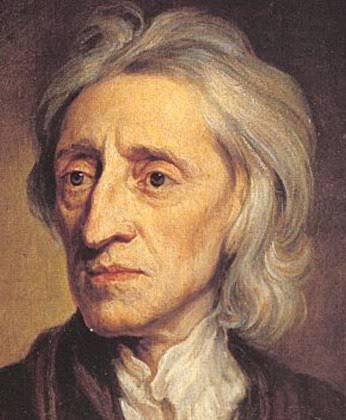
Socrates of Athens [Axial Period 800 - 200 B.C.]
In the rich tapestry of human history, the "Chronicles of Thought: The Long Awakening Through Ages in Flux," encapsulates the relentless journey of our understanding — a journey fraught with transformative shifts that have redefined who we are and how we perceive the world around us. Humanity has grappled with profound questions across epochs, from the spiritual musings of ancient civilizations to the rational inquiries of Enlightenment thinkers. Each era has brought forth an awakening, igniting a thirst for knowledge and illuminating the complexities of existence, whether through mystical storytelling, philosophical debate, or scientific discovery.
As we delve into this exploration, we will uncover the pivotal transitions that have shaped our intellectual landscape. We will examine how societies evolved, adaptively responding to the chaos and creativity that come with change. The Chronicles of Thought serves not just as a historical recounting, but as a reflection on the dynamic interplay between thought and circumstance — a narrative that compels us to interrogate our past, confront the turbulence of our present, and envision a future where inquiry and imagination forge new paths ahead. Join us as we navigate this intricate journey through the ages, discovering the lessons and legacies embedded in our shared quest for understanding.

Archimedes [Greek Mathematician and Physicist of Classical Antiquity]
Unraveling the chronicles of thought: A journey through historical transformations
Throughout history, the chronicles of thought reveal humanity's relentless pursuit of knowledge and understanding. From the earliest civilizations, where myths and oral traditions served to explain the unknown, to the contemplative inquiries of ancient philosophers, our quest for meaning has fueled transformative ideas. These transformations did not emerge in a vacuum; instead, they unfolded in response to cultural, social, and technological changes. Each epoch brought forth thinkers who challenged existing paradigms, inviting society to reconsider long-held beliefs and embrace new perspectives.

Ibn Sina [Philosopher and Physician of the Islamic Golden Age; 8th - 13th century]
As we delve into these historical transformations, we observe a tapestry woven from diverse threads of insight and innovation. The invention of the printing press revolutionized the dissemination of ideas, ensuring that knowledge became accessible beyond elite circles. The Renaissance sparked a revival of classical thought, breathing life into humanism and scientific inquiry. Each chapter in the chronicles of thought marks a pivotal moment where the collective consciousness of society shifted, illuminating the path to progress. Thus, exploring these eras reveals not only the evolution of ideas but also the foundational moments that continue to shape our understanding in an ever-changing world.

Galileo [Astronomer of the 14th - 17th century Humanist Renaissance Period]
The long awakening: Key epochs that reshaped human understanding
Throughout history, distinct epochs have catalyzed fundamental shifts in human understanding and reflection. The ancient world laid the groundwork with mythologies and philosophies that sought to explain the universe, offering early frameworks for inquiry. From the rich tapestries of Egyptian, Mesopotamian, and Indian thought, humanity began its quest for meaning, fostering the growth of philosophical schools in Greece. Thinkers like Socrates, Plato, and Aristotle prompted a reexamination of established beliefs, shifting focus from divine authority to human reason. This intellectual awakening marked the first of many transformative moments, setting the stage for future epochs that would continually redefine our pursuit of knowledge.

Sir Isaac Newton [English Polymath of the 16th - 18th century's Scientific Period]
The Renaissance ignited a fervor for rediscovery, with renewed interest in classical texts inspiring a cultural rebirth in art, science, and philosophy. As the shackles of medieval thought began to loosen, innovators like Galileo and Copernicus reshaped scientific paradigms, demonstrating that empirical observation could challenge long-standing dogmas. The Enlightenment further pushed boundaries, marrying reason with political philosophy and establishing foundations for modern democracy. These pivotal epochs illustrate the cyclical nature of discovery and doubt, each awakening building upon the last, urging humanity to question, redefine, and ultimately transform its understanding of the world. As we explore these key moments, we recognize the enduring impact of these shifts on our current perceptions and the complex journey of thought through the ages.

John Locke [English Philosopher and Physician of the Enlightenment Period]
Navigating the ages in flux: Lessons from the chronicles of thought
As we delve into the Chronicles of Thought, we uncover profound lessons borne from humanity's journey across tumultuous epochs. Each age in flux elucidates not just the progress made but also the recurring patterns of thought that manifest in response to crisis and discovery. From the chaos of ancient wars to the serenity of philosophical discourse, our intellectual evolution mirrors the serenity and turbulence of our collective existence. By understanding these transitions, we can extract wisdom that prompts us to ask crucial questions today—how do we adapt as our environment transforms? What principles can guide us through the cacophony of information that defines our current landscape?

Karl Marx [German Philosopher and Economist of the Industrial Age]
The journey through Chronicles of Thought reveals an essential truth: change is a catalyst for growth. Each epoch teaches us that discomfort and uncertainty often precede innovation and enlightenment. The Renaissance taught us to appreciate human potential; the Enlightenment stirred a belief in rational governance, and the digital revolution redefined how we access knowledge. As we navigate our present, we stand at another juncture, facing the challenges posed by artificial intelligence and rapid technological advancements. The lessons ingrained within the chronicles encourage us to remain curious, question our assumptions, and harness our collective intelligences in pursuing meaning amid the flux, ensuring that we do more than simply drift through the ages—we evolve.

